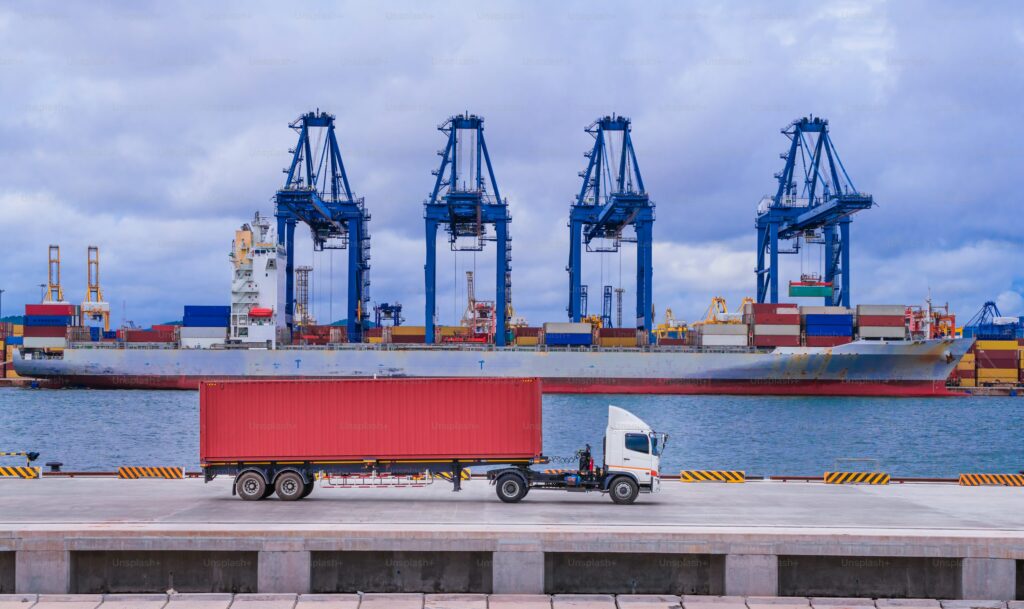Freight Brokerage 101: What Every New Agent Needs to Know Before Starting
Introduction
The freight brokerage industry is one of the fastest-growing sectors in logistics, and 2025 is shaping up to be a pivotal year. With global supply chains becoming more complex and businesses demanding efficient, reliable shipping solutions, the role of freight brokers and agents has never been more critical.
If you’re considering a career in freight brokerage, this guide will walk you through everything you need to know before getting started—from understanding industry roles to licensing, compliance, and income potential. Most importantly, we’ll explain why joining an established brokerage like Pharo Logistics can accelerate your path to success.
What a Freight Broker and Freight Agent Do
Before diving into the details, it’s important to understand the key roles in freight brokerage.
- Freight Broker: A licensed intermediary who connects shippers (companies that need goods transported) with carriers (trucking companies, rail lines, or shipping providers). The broker is responsible for negotiating rates, ensuring compliance, and coordinating the movement of freight.
- Freight Agent: An independent contractor working under a licensed broker. Agents find customers, manage relationships, and coordinate shipments, but they don’t carry the broker’s legal responsibility or licensing requirements.
In simple terms, freight brokers manage compliance and liability, while freight agents focus on building business and customer service. Both roles are crucial to keeping supply chains moving.
The Difference Between Carriers, Shippers, and Brokers
To thrive in freight brokerage, you must understand the three main players in the supply chain:
- Shippers – Companies or manufacturers responsible for transporting goods from one location to another. For example, a retail company that needs to ship inventory from a warehouse to stores.
- Carriers – The trucking companies, airlines, railroads, and ocean liners responsible for physically transporting freight.
- Brokers – The middlemen who connect shippers with carriers, negotiate contracts, and ensure smooth logistics operations.
Brokers and agents add value by saving shippers time and money while providing carriers with consistent loads. This creates a win-win situation in the transportation ecosystem.
Licensing & Compliance Requirements
Freight brokerage is a regulated industry. To operate as a freight broker, you must:
- Obtain a Broker Authority (MC Number) – Issued by the Federal Motor Carrier Safety Administration (FMCSA), this license allows brokers to operate legally.
- Secure a Surety Bond (BMC-84 or BMC-85) – A $75,000 bond that protects shippers and carriers in case of non-payment.
- File Process Agent Designation (BOC-3 Form) – Assigns a registered agent for legal documents in every state.
For freight agents, the process is simpler. Agents don’t need a license or bond because they operate under a licensed broker’s authority. This is why many newcomers start as agents—to avoid upfront costs and focus on building customer relationships.

Commission Structures and Income Potential
One key benefit of a freight agent career is the potential for significant earnings. Agents typically work on commission-based income, earning a percentage of the profit from each load.
Here’s how it generally works:
- A shipper pays $2,000 for a load.
- The carrier is paid $1,600 to move the freight.
- The brokerage keeps $400 in gross profit.
- The agent earns a percentage of that profit (often 50–70% depending on the agreement).
This model creates unlimited income potential. The more loads you secure, the more you earn. Experienced agents with strong shipper relationships often make six figures annually.
Why Joining a Strong Brokerage Like Pharo Logistics Makes Success Easier
While it’s possible to start your brokerage, the costs, compliance requirements, and operational challenges can overwhelm new entrants. Partnering with an established brokerage like Pharo Logistics provides several advantages:
- Compliance Support – Pharo handles licensing, bonding, and regulatory filings so you can focus on sales.
- Training and Mentorship – Access to resources and expert guidance helps new agents avoid costly mistakes.
- Access to Shipper Leads – Instead of starting from scratch, agents can leverage Pharo’s existing relationships.
- Government Contracting Opportunities – Pharo is government-contract ready, giving agents access to lucrative federal loads.
- Cutting-Edge Technology – Tools for load tracking, communication, and payment processing streamline operations.
By partnering with a brokerage that prioritizes agent success, you can fast-track your career growth and focus on building long-term business relationships.
Why Freight Brokerage is Growing in 2025
Several factors are fueling industry growth this year:
- E-commerce Expansion – Online retail continues to drive high shipping demand.
- Global Supply Chain Shifts – Businesses are diversifying supply chains, creating new opportunities for brokers.
- Infrastructure Investments – Government spending on roads and trade logistics boosts transportation needs.
- Focus on Small and Minority-Owned Businesses – Federal contracts are increasingly supporting diverse freight partners.
This growth means now is the perfect time to launch a career in freight brokerage.
Conclusion
Freight brokerage offers a rewarding career path for entrepreneurs and independent professionals who want to tap into the booming logistics industry. By understanding the roles of brokers and agents, compliance requirements, commission structures, and industry dynamics, you’ll be well-prepared to enter the field.
Partnering with Pharo Logistics ensures you have the training, compliance support, shipper connections, and government contracting opportunities needed to thrive as a new agent.
Call to Action
Are you prepared to launch your freight brokerage career with confidence? Explore our Freight Agent Training & Support Resources and learn how Pharo Logistics can help you succeed.





